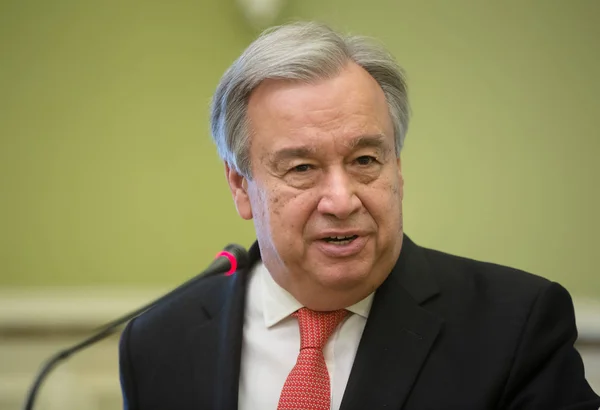Antonio Guterres, secretary general of the United Nations, called on Monday on wealthy countries to provide sufficient assistance to low-income countries that are susceptible to climate change-caused disasters.
Guterres stated that there is a biased international financial system to benefit wealthier countries. Thus, according to Guterres, it should undergo modifications to provide a fairer distribution of resources. The secretary-general said this in his speech at a conference in Geneva on reconstruction efforts following severe floods in Pakistan.
Shehbaz Sharif, the prime minister, and Antonio Guterres, the secretary general of the UN, co-host a summit in Geneva to try, and rally support for the nation in the wake of last year’s disastrous floods.
In a strident attack on the morally corrupt global banking system, he said to the reporters that the current system’s bias is blatantly obvious.
Since a group of wealthy nations developed the system, so it inherently favors wealthy nations.
Pakistan needs financial aid after climate change caused floods
Ahead of floods that caused at least 1,700 fatalities, millions of displaced people, and critical infrastructure damage, Pakistani Prime Minister Shehbaz Sharif said his country needed $8 billion from the international community over the following three years to support recovery efforts. Guterres was speaking alongside Sharif.
As Pakistan tries to restart its bailout program, a delegation from the International Monetary Fund (IMF) will meet with the finance minister of Pakistan on the margins of a meeting in Geneva that starts on January 9.
Pakistan only has enough foreign exchange reserves to handle one month’s worth of imports because the lender has yet to sanction the transfer of the $1.1 billion scheduled to be distributed in November of last year.
Pakistani Finance Minister Ishaq Dar recently criticized the IMF, claiming that the institution was behaving abnormally in its interactions with Pakistan, which enrolled in the $7 billion bailout program in 2019.
The IMF spokeswoman said that Kristalina Georgieva, the organization’s managing director, had a productive call with Sharif before the Geneva summit and backed Pakistan’s reconstruction efforts.
Disaster in Pakistan is just one of the examples
Guterres in Geneva spoke about the general change of financing the countries in need, not just in Pakistan’s case. He said that the world needs a new debt architecture, and needs to ensure that the system efficiently provides debt relief to middle-income countries. He proposes such measures for countries that are on the cusp of extremely tough, extremely dramatic scenarios, and it should include halting payments.
The International Monetary Fund has not yet approved the release of the originally scheduled $1.1 billion payment in November of last year. Thus, Pakistan now only has enough foreign exchange reserves to pay for imports for one month.
Guterres asked for the vulnerability of nations to be taken into account when big financial institutions provide below-market rate funding, expressing irritation at the inaction of world leaders and the lack of investment to tackle climate catastrophes.
In order to be able to consider vulnerability and not just GDP when the institutions make choices about providing concessional loans to nations around the world, he continued, we need to reform the overall financial system.

